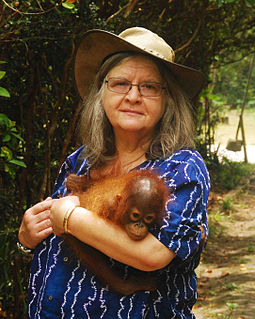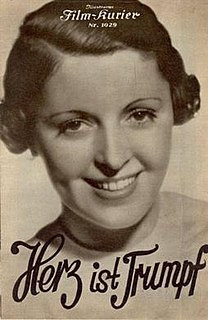
Love Story is a 1970 American romantic drama written by Erich Segal, who was also the author of the best-selling 1970 novel of the same name. It was produced by Howard G. Minsky and directed by Arthur Hiller and starred Ali MacGraw and Ryan O'Neal, alongside John Marley, Ray Milland, and Tommy Lee Jones in his film debut in a minor role.

The Bell Jar is the only novel written by the American writer and poet Sylvia Plath. Originally published under the pseudonym "Victoria Lucas" in 1963, the novel is semi-autobiographical with the names of places and people changed. The book is often regarded as a roman à clef because the protagonist's descent into mental illness parallels Plath's own experiences with what may have been clinical depression or bipolar II disorder. Plath committed suicide a month after its first United Kingdom publication. The novel was published under Plath's name for the first time in 1967 and was not published in the United States until 1971, in accordance with the wishes of both Plath's husband, Ted Hughes, and her mother. The novel has been translated into nearly a dozen languages.

Jenny Diski FRSL was an English writer. She had a troubled childhood, but was taken in and mentored by the novelist Doris Lessing; she lived in Lessing's house for four years. Diski was educated at University College London, and worked as a teacher during the 1970s and early 1980s.

Face to Face is a 1976 Swedish psychological drama film written and directed by Ingmar Bergman. It tells the story of a psychiatrist who is suffering from a mental illness. It stars Liv Ullmann and Erland Josephson.

Biruté Marija Filomena Galdikas or Biruté Mary Galdikas, OC, is a Lithuanian-Canadian anthropologist, primatologist, conservationist, ethologist, and author. She is a professor at Simon Fraser University. In the field of primatology, Galdikas is recognized as a leading authority on orangutans. Prior to her field study of orangutans, scientists knew little about the species.

The Deep End of the Ocean is a best-selling novel by Jacquelyn Mitchard, released in 1996. It is about an American middle class, suburban family that is torn apart when the youngest son is kidnapped and raised by a mentally ill woman, until he appears at the front doorstep of his real mother and asks if he can mow the lawn.

Friern Hospital was a psychiatric hospital in the parish of Friern Barnet close to a crossroads which had a hamlet known as Colney Hatch. In 1965, it became part of the London Borough of Barnet and in the early 21st century was converted to residential housing as Princess Park Manor and Friern Village. The hospital was built as the Second Middlesex County Asylum and was in operation from 1851 to 1993. After the County of London was created in 1889 it continued to serve much of Middlesex and of the newer county, London. During much of this time its smaller prototype Hanwell Asylum also operated.
Lee Smith is an American fiction author who typically incorporates much of her background from the Southeastern United States in her works. She has received writing awards, such as the O. Henry Award, the American Academy of Arts and Letters Award for Fiction, the North Carolina Award for Literature, and, in April 2013, was the first recipient of Mercer University's Sidney Lanier Prize for Southern Literature. Her novel The Last Girls was listed on the New York Times bestseller's list and won the Southern Book Critics Circle Award. Mrs Darcy and the Blue-Eyed Stranger, a collection of new and selected stories, was published in 2010.

The Memoirs of a Survivor is a dystopian novel by Nobel Prize-winner Doris Lessing. It was first published in 1974 by Octagon Press. It was made into a film in 1981, starring Julie Christie and Nigel Hawthorne, and directed by David Gladwell.

Forrest Alexander Gump is a fictional character and the title protagonist of the 1986 novel by Winston Groom, Robert Zemeckis's 1994 film of the same name, and Gump and Co., the written sequel to Groom's novel.

An Abundance of Katherines is a young adult novel by John Green. Released in 2006, it was a finalist for the Michael L. Printz Award.

Love Story is a 1970 literary love story by American writer Erich Segal. The book's origins lay in a screenplay that Segal wrote, and that was subsequently approved for production by Paramount Pictures. Paramount requested that Segal adapt the story into novel form as a preview of sorts for the film. The novel was released on February 14, 1970

In Her Shoes (2002) is a work of Jewish American literature by Jennifer Weiner. It tells the story of two sisters and their estranged grandmother. The novel was a New York Times bestseller. The two sisters happen to wear the same size shoes - the only common ground that they have besides a mutual hatred of their step-mother.

The War Between the Tates is a campus novel by Alison Lurie that takes place at an elite university during the upheavals of the late 1960s and gently and deftly skewers all sides in the turmoils and conflicts of that era — opposition to the Vietnam war, the start of the feminist movement, the generation gap, sexual liberation, experimentation with drugs, and student unrest.

Nothing Natural is the 1986 debut novel by Jenny Diski, initially published in hardback through Simon & Schuster. It follows a young woman who enters into a sadomasochistic relationship with a charming and domineering man. The book, perceived as an S&M-book by the New Yorker, received some backlash upon its release, as critic Anthony Thwaite criticized it as being "the most revolting book I've ever read," and the feminist magazine Sisterwrite chose to ban Diski from publishing with them.
Bacha posh is a practice in Afghanistan and parts of Pakistan in which some families without sons will pick a daughter to live and behave as a boy. This enables the child to behave more freely: attending school, escorting her sisters in public, and working.

Bertha Antoinetta Rochester is a fictional character in Charlotte Brontë's 1847 novel Jane Eyre. She is described as the violently insane first wife of Edward Rochester, who moved her to Thornfield Hall and locked her in a room on the third floor.
Torre de Babel is a Brazilian primetime telenovela produced by Rede Globo and broadcast in its traditional schedule of 9 p.m. between May 25, 1998 and January 16, 1999.

Hearts are Trumps or Love All is a 1934 German comedy film directed by Carl Boese and starring Jenny Jugo, Paul Hörbiger, and Friedrich Benfer.
















